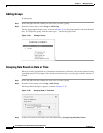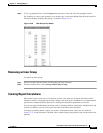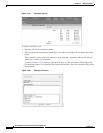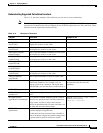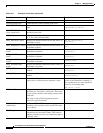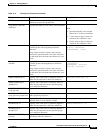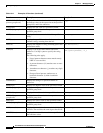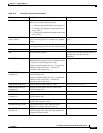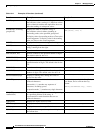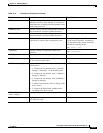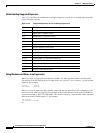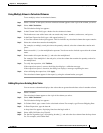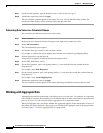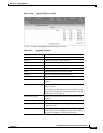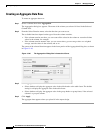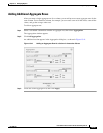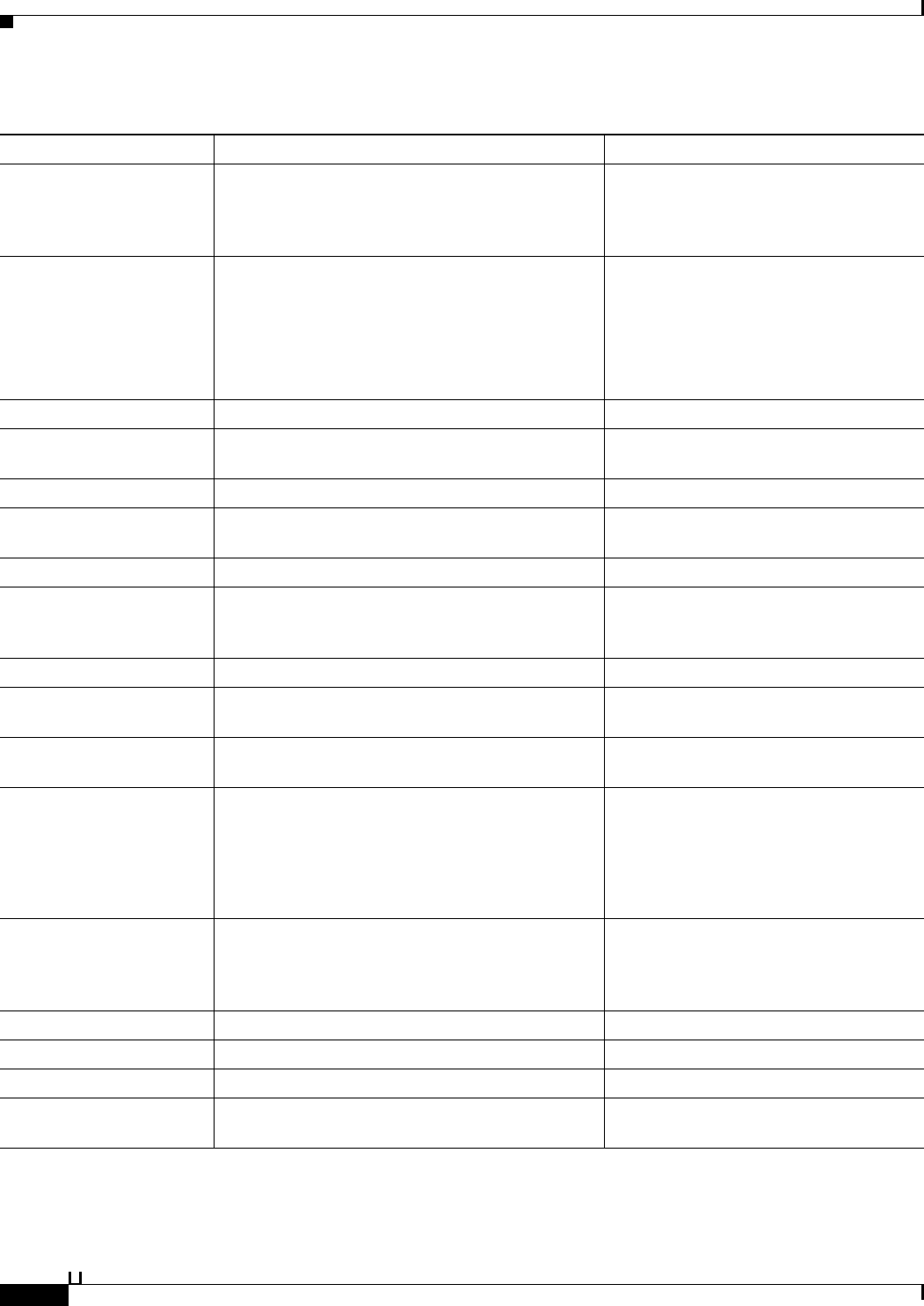
13-58
User Guide for Cisco Secure Access Control System 5.3
OL-24201-01
Chapter 13 Managing Reports
Organizing Report Data
RANK(expr) Displays the rank of a number, string, or
date-and-time value, starting at 1. Duplicate values
receive identical rank but the duplication does not
affect the ranking of subsequent values.
RANK([AverageStartTime])
RANK(expr, ascending,
groupLevel)
Displays the rank of a number, string, or
date-and-time value in either ascending or
descending order, at the specified group level.
To display values in ascending order, use True as the
second argument. To display values in descending
order, use False as the second argument.
RANK([Score], false, 3)
RANK([Score], true, 2)
RIGHT(str) Displays the character at the right of a string.
RIGHT([name])
RIGHT(str, n) Displays the specified number of characters in a
string, counting from the right.
RIGHT([name], 3)
ROUND(num) Rounds a number.
ROUND([SalesTarget])
ROUND(num, dec) Rounds a number to the specified number of digits.
The default value for dec is 0.
ROUND([StockValue], 2)
ROUNDDOWN(num) Rounds a number down.
ROUNDDOWN([StockPrice])
ROUNDDOWN(num, dec) Rounds a number down, away from 0, to the
specified number of digits. The default value for dec
is 0.
ROUNDDOWN([StockPrice], 2)
ROUNDUP(num) Rounds a number up.
ROUNDUP([TotalValue])
ROUNDUP(num, dec) Rounds a number up, away from 0, to the specified
number of digits. The default value for dec is 0.
ROUNDUP([TotalValue], 2)
RUNNINGSUM(expr) Displays a running total, adding the values in
successive data rows.
RUNNINGSUM([StockValue])
SEARCH(pattern, str) Case-insensitive search function that can use
wildcard characters.
An asterisk ( * ) matches any sequence of
characters, including spaces.
A question mark ( ? ) matches any single character.
The following search yields New York,
New Haven, and so on from the City
column:
SEARCH([CustomerData:city], "new*")
SEARCH(pattern, str,
startPosition)
Searches for a specified pattern in a string, starting
at a specified position in the string. A
case-insensitive search function that can use
wildcard characters.
SEARCH([Location], "new", 1)
SQRT(num) Displays the square root of a value.
SQRT([PrincipalValue])
STDEV(expr) Displays the standard deviation.
STDEV([PurchaseFrequency])
SUM(expr) Displays the sum of two specified values.
SUM([Price]+[Tax])
TODAY( ) Displays a time stamp value equal to midnight of
the current date.
TODAY([DueDate])
Table 13-11 Examples of Functions (continued)
Function Description Example of use



